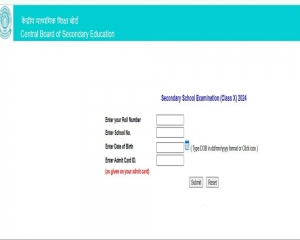Securing truth in the age of synthetic realities is more difficult than ever before. It must be curbed before it becomes unmanageable
The use of deepfake technologies has made it easier to impersonate another person physically or verbally these days. Sachin Tendulkar, the Cricket Legend, is one of the recent victims of deepfake, where in a morphed video, he is shown endorsing a gaming app and explaining how easily money can be drawn using this app. Rashmika Mandana to Alia Bhat, famous Indian Actresses, fell prey to deepfakes, hitting their reputation and prestige not only as respected Indian actresses but also as women. Some time ago, Telangana Minister KT Rao, after becoming a deepfake victim, wrote to the Election Commission and mentioned the incident and its effect on voters and the public. Seeing these incidents happening frequently, it can be easily predicted that deepfake technology may achieve an unprecedented level of realism – blurring the lines between real and synthetic. These incidents also reflect a major concern about the misuse of deepfake technologies in the spread of disinformation and misinformation that is directly hitting the informational security of society at large.In layperson's language, deepfakes are images or videos of a person’s likeness or other related things that have been digitally altered in a bid to misrepresent what happened in reality such as facial expression manipulation, face morphing, face swap, face generation and full body puppetry. The synthetic media not only inflict individual harm but have a profound impact on organisations, governments, and society at large. The deleterious effects of deepfakes transcend mere personal consequences, encompassing psychological, financial, and societal realms; they erode the trust that underpins organizations, sow doubt in the halls of justice, and may even threaten the foundations of democracies.Imagine a world where your carefully crafted reputation can be shattered in an instant by a fabricated video. Where companies become pawns in blackmail schemes orchestrated through manipulated footage. Where legal proceedings lose their legitimacy as the authenticity of evidence becomes suspect. This dystopian reality is no longer fiction; it’s the chilling consequences of deepfakes. The IT Rules 2021 provides a complete list of prohibited content under rule 3(1)(b). Intermediaries are already bound to act in case of removals, blocking, or complaints regarding any deepfake content posted on their platform.There are speculations that the Ministry of Electronics and Information Technology is soon to come up with new provisions under the IT Rules, 2021 to curb the prevalence of deepfakes. As per the author’s understanding, to restrain the spread of deepfakes on the intermediary’s platform, there are two ways in which IT Rules, 2021 may be amended. First, to define ‘deepfake’ and put it in the prohibited category of content under rule 3(1)(B) of the IT Rules, 2021. By doing this, automatically all the other due diligence requirements on intermediaries will apply in case of deepfakes as well. However, the major consequences of deepfake, misinformation, and impersonation are already included in the prohibited category of the list. Deepfake is emerging as a service company. The increased demand for deepfakes has also led to the establishment of several companies that deliver deepfakes as a product or even online service. These services are intended for use by marketers to personalise videos, eliminating the need to record a video for each recipient. Essentially, these services make producing a deepfake video as easy as editing text. Hence, the most appropriate and effective way to restrain deepfake is to directly regulate these companies that provide such deepfake technology. Second, deepfake may be regulated under the proposed Digital India Act by introducing a new class of online platforms, i.e., AI Synthesis Online Platforms (as the name may be called), and providing separate rules for their compliance.The proposed Digital India Act may include a few obligations for AI Synthesis Online Platforms. First, requiring them to ensure adherence to all the existing cyber and data protection legislation in India. Second, such online platforms, in order to ensure transparency, should provide information regarding the number of users of such platforms, their platform’s management rules, adopted technologies, tools deployed, and any other relevant information. Third, they may be obliged to deploy technological tools for recognizing false and damaging information created using services of the platform, implement a real-identity information authentical system, and adopt a review mechanism of synthetic data. It should also be obligatory on such platforms to tag or label those contents that are generated by using deepfake technologies. In view of the rising deepfake incidents and the government’s apparent concern for the same, it is probable that we may not have to wait for long for the necessary regulations as well as the Digital India Act to come into existence.
(Siddhartha is Sr Assistant Professor at the Faculty of Law, University of Delhi and Bhavna is a techno-legal policy professional; views are personal)

























